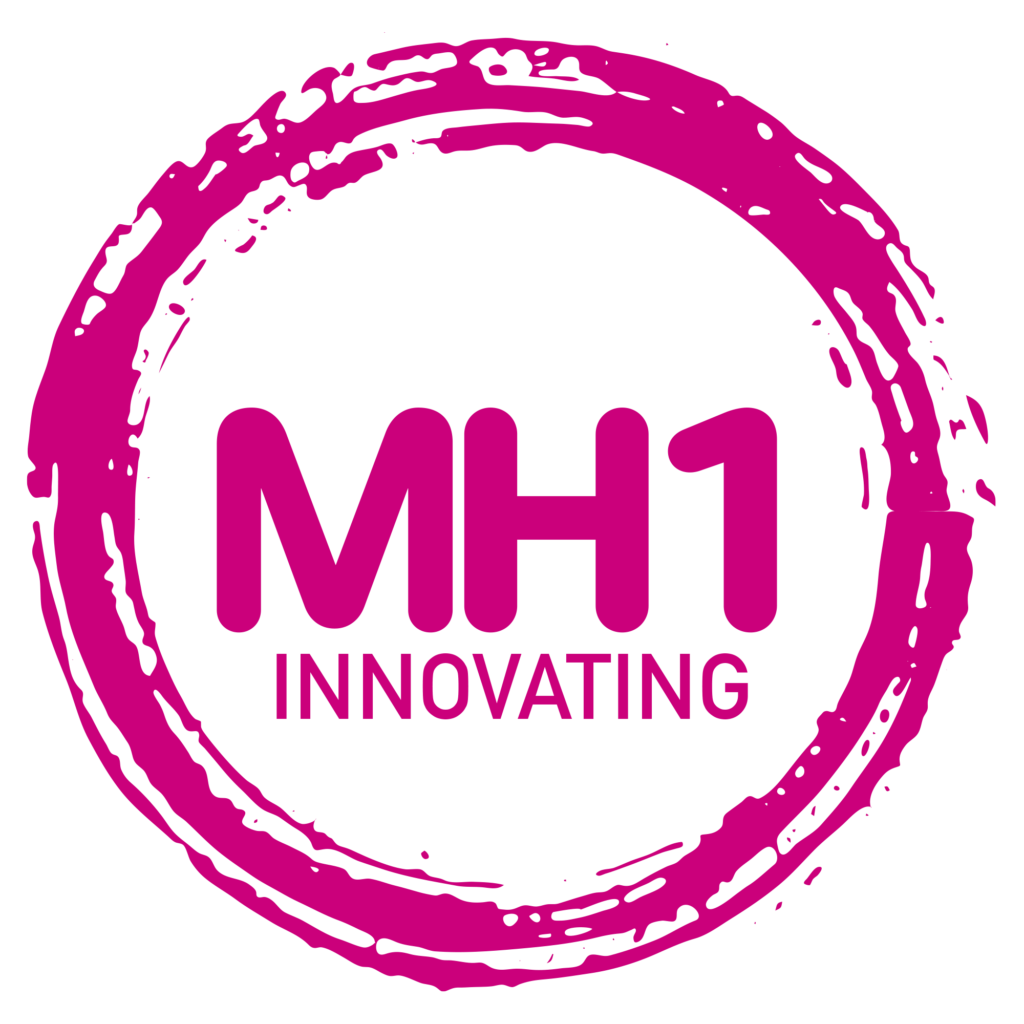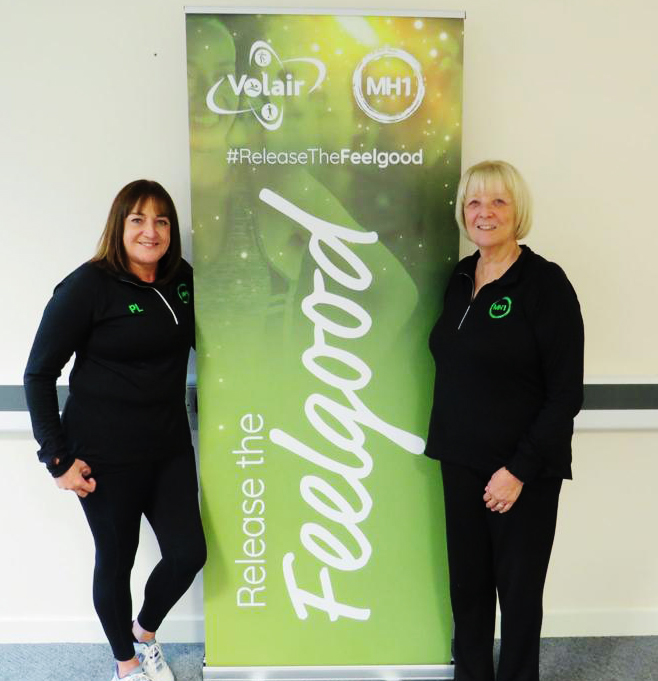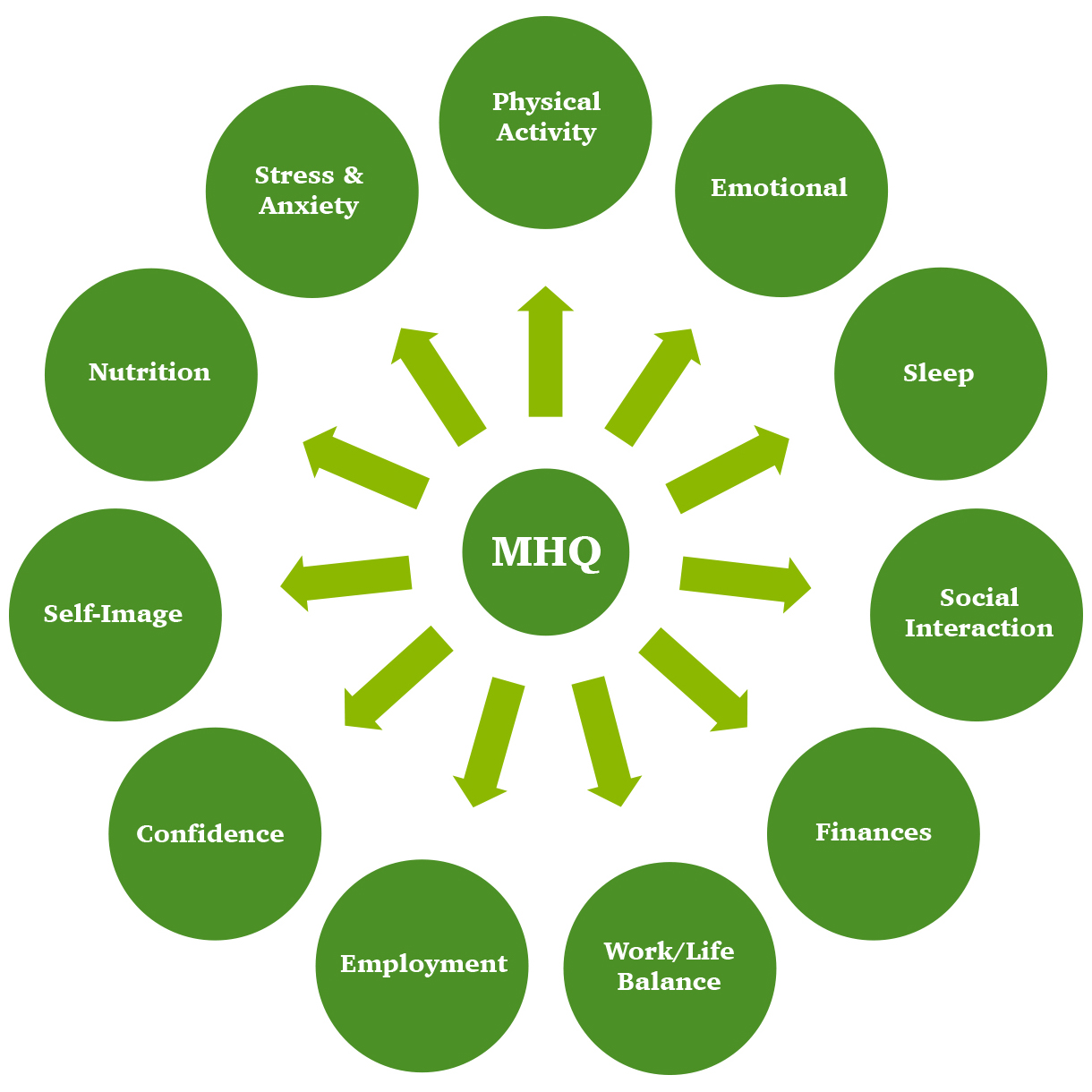

MH1’s MHQ is now live and securely stored on partner ReferAll’s data management platform!
This psychometric tool measures the trajectory of mental health using 11 lifestyle factors as markers and can be used to support both staff and clients with adapting lifestyle to improve their mental health.

• Be sent by email, text or conducted face to face.
• Score automatically.
• Give you live data and numerous reporting options.
• Focus on a client led plan of action.
• Be supported by a comprehensive training package that includes, interpreting results, possible interventions and conducting the consultation.
• Allow for follow ups to track results.
How can it help your business?
• Reduce long term sickness
• Increase staff moral
• Increase staff/client/member retention
• Contribute to compliance with ISO 45003
• Open pathways to community partner collaborations to deliver on interventions
• Open the doors to accessing funding
• Provide evidence to report and present to local health and wellbeing boards
Off the Rank First!
Welcome aboard Oldham College, the first FE establishment who are committed to improving staff wellbeing and reducing long term sickness. They have taken the innovative approach of appointing 10 wellbeing advisors within the current staff, who will be delivering the MHQ and supporting colleagues through a range of in house and community partner services.
Welcome also to Volair Leisure who are the first leisure trust to adopt the questionnaire! They have a mandate to support both staff and members with their mental health using the MHQ tool and a host of in-house services and external partners.
We can’t wait to see the anonymised initial results and where you both go with this groundbreaking tool!
If you would like to know more about the MHQ and how you can access it for your business.
We’d love to hear from you!
Paula’s story
The creation of Mental Health Questionnaire (MHQ)
I started an MSc in Psychology (conversion) at Edge Hill University without an actual goal of enrolling. I was not sure why I wanted to do it, but I felt that there would be a reason for my drastic choice, and it turns out there was a very good reason…
In year 2, I had just been approved for a dissertation proposal and the ethics paperwork had been signed off; writing an ethics proposal took some time so I was delighted that I could get started. The study was to investigate the benefits of mindful Pilates in collaboration with Cherry Baker, using her studio and member database. I left university that day heading to Cherry’s studio to discuss the next steps when I received a call from Lynne Briggs who wondered if I could create a mental health questionnaire? At this point, I took the wrong turn, got lost (I am not great at motorway driving), and said I would think about it as I was not sure it was something I could do (this was not part of the MSc content after all).
I woke up in the night and decided that it was a fantastic idea, although I had nowhere to start so I contacted my dissertation tutor who rang me and said to re-write my ethics proposal (groan! More work!). The specification from Lynne was as clear as mud! We both were not sure what we wanted to produce but we knew something was missing from the fitness industry in terms of measuring the pathway to mental health outcomes and that fitness professionals could play a pivotal part in preventative lifestyle interventions to reduce mental ill-health.
We started by creating original questions that we hear people saying about their health and lifestyle, using the biopsychosocial model as a backdrop to our approach, including questions around psychological, social, and behavioural as these contribute to mental health outcomes. We got tons of support from people who completed the questions for us so that we could analyse the data. We had 101 questions!
The data was immense but needed analysing. With advice from the tutor, we reduced the questions to 73 (which took weeks by the way and a lot of stress), then checked the questions for validity and reliability with my data assistant Lynne (she had no choice) using some software called SPSS.It was agreed that the study was a success and the statistical analysis agreed that the MHQ was scientifically sound and could be launched into the fitness industry. I graduated from Edge Hill University with a distinction and was happy, but something niggled us both….
The MHQ was valid and reliable, but it was too big for the industry. We needed a shortened version. Agghhhh, what to do? We spoke to experienced professionals who agreed that we needed to refine the MHQ. Then, as if it was meant to be, a senior lecturer from Edge Hill contacted me and asked me to speak to students on a new module she was teaching, psychometric questionnaires! (Are you kidding me! Where was this module when I was there)? Of course, I agreed but then asked if she would help us refine the questionnaire, which she also agreed to (woo hoo!). So happy with that! Lynne and I went to visit Edge Hill and we discussed the data collected from the study and how we could reduce the questions from 73 to 9 -10 scales instead, however, this would need a little bit of analysis and maybe some further testing against similar questionnaires.
So here we are, in phase 2 of testing with a fantastic and experienced tutor from Edge Hill University and we look forward to updating you all soon.
In the meantime, we know that once the MHQ is launched, we anticipate that fitness professionals will require some training around mental health and more effective strategies for improving lifestyle, so we will be offering 2 courses in readiness: L2 Mental Health Awareness and a unit certificate in Behavioural Change.

